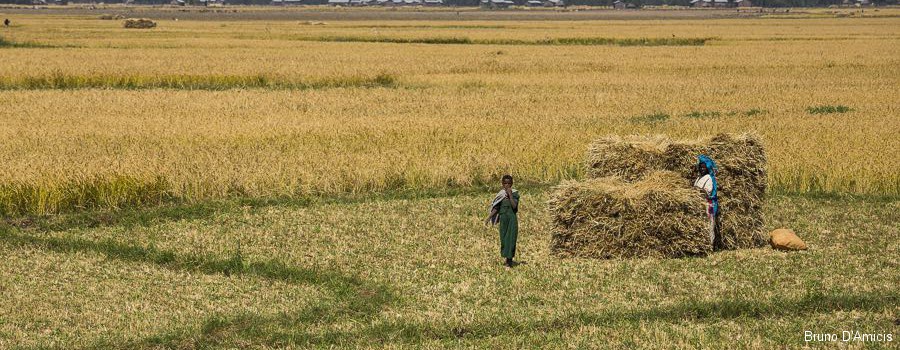
Riches from a fertile soil
The fertile shores of Lake Tana have provided food for the local communities for thousands of years. The tradition continues today as agriculture is the main source of income for around 90% of people living in the Lake Tana Biosphere Reserve. The soils are rich, allowing a wide variety of crops to be grown including rice, chickpeas and teff, a tiny indigenous grain that is endemic to Ethiopia. Teff is a versatile, nutrient-packed, gluten-free, whole grain with a mild nutty flavour and is gaining in popularity all around the world. In Ethiopia it is ground into flour and fermented to make tasty injera or pancakes.
The local people have strong ties to their land and still use traditional cultivation methods. Traditional ox-drawn wooden ploughs till the land and seeds are sown and harvested by hand. Cattle are indispensable to the inhabitants of the reserve and the Forega, a special breed from the Fogera Woreda inside the biosphere reserve, is said to produce some of the best milk in Ethiopia.
The area around the lake was once covered in dense coffee forests, small patches of which still remain, such as those on the Zege Peninsula and the sacred church forests.
Honey is an integral part of local farming and the traditional wooden beehives provide a tasty addition to the local diet and an essential ingredient of Tej, a delicious mead-like drink fermented from honey.
